Urna interviews Gopal Lahiri, a renowned poet to explore his hunger for creative writing, love with poetry, the play of imagination as a geologist and poet, among other things. An exclusive for Different Truths.
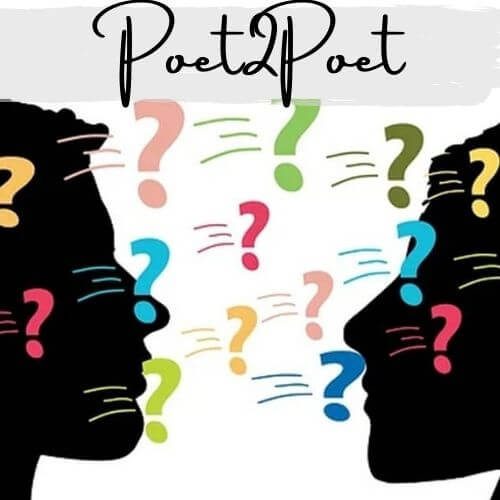
Can science and poetry, the two ends of the spectrum of thoughts, live together harmoniously? Can science and poetry be friends? Can science and poetry come together like air and fire, turning into a highly combustible compound? Acting like a catalyst for change and a formula for magic. This week, we bring you a poet who continues to straddle many worlds with equal aplomb.
Join me dear friends, poets, writers, and lovers of poetry, as I chat with Gopal Lahiri and get to pick his brains.
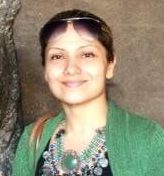
Urna: I remember we both discussed our alma mater, the one and only iconic Presidency College when we met in Bhubaneshwar. Please do tell us, your readers and your fans about some of the earliest influences of your life. People, places, books, institutions or the socio-political milieu at large. Some of the earliest influences that started shaping and moulding you into the prolific poet, and the magnificent writer you would become, as life slowly unfolded itself.
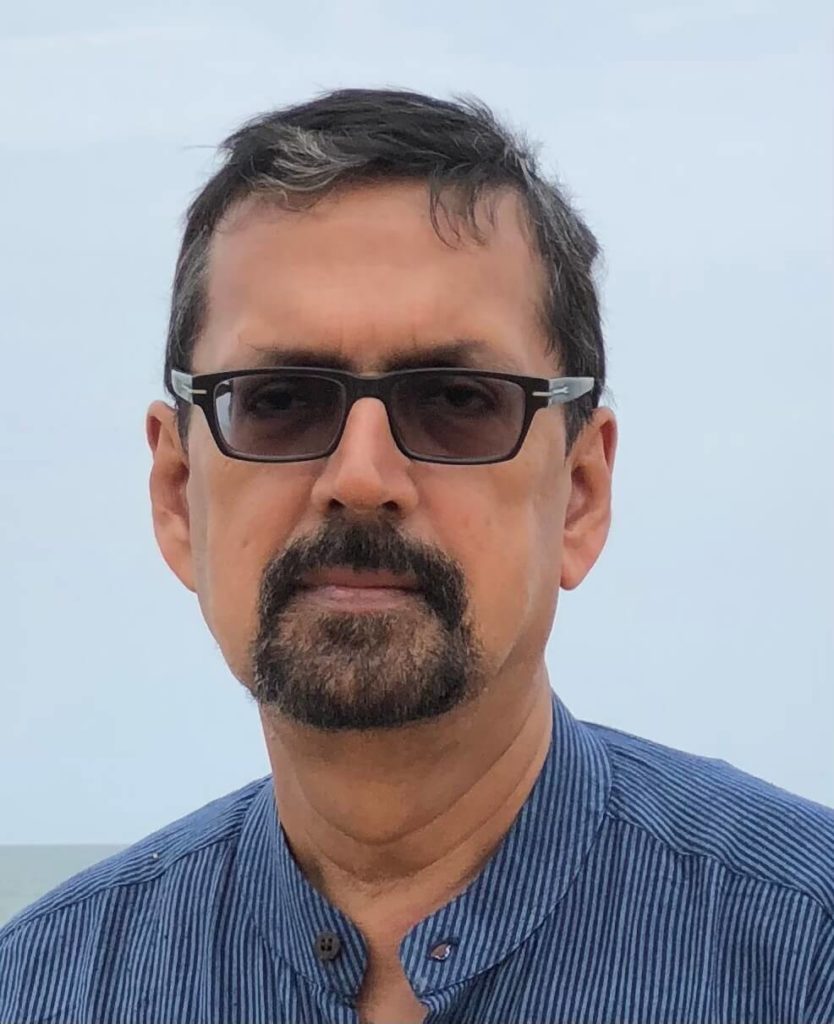
Gopal: I started writing in my childhood, but seriously during my college days. In the late seventies and early eighties, I used to freelance a lot for a Calcutta based English daily, covering art and cultural events, and writing for a few other journals.
Presidency College is a renowned college in Kolkata, and I enjoyed every moment there. Studying Geology is a fascinating experience, and I don’t know anyone who doesn’t feel that way. The college ambience was such that it did create the fire and need to achieve success. Honestly speaking during college days, I used to be a serious science student, good in academics and wanted to achieve more in my career.
As I said earlier also, the study of science was there and I eventually completed my Masters in Geology and joined the National Oil Company, looking for oil and gas beneath the surface.
But the hunger for creative writing was always there. Like many others, there is no denying that I visited the iconic College Street Coffee House more often than not, checking the latest trends in poetry and little magazines per se, sometimes even bunking classes. I was more into writing poems in my mother tongue, Bengali, as also in English, especially when I started college. Later, I found myself more and more fascinated with poetry.
I can easily recall the reading of Tagore’s poems in my childhood and slowly I fell in love with poetry. In my early days, fear was not an option, and I was free to write. The answer was from my heart. I am a lover of nature and I have memories of writing poems on nature in a school magazine. As it happens, I am more enchanted by my surroundings with its smell, sound, fissures and lineaments and their intricate relations with people. This has been going on for nearly forty years. I don’t know when it started exactly but writing, especially poetry, is something which is absolutely essential for me. Poems that I’m creating are just part of me.
I never fume in my lines and I feel comfortable with this. I love writing reviews, editing books, and translating poems and prose alike, but less in number, compared to poetry.
Besides Tagore, I was amazed by the works of Jibanananda Das and Bishnu Dey whom I read a lot. Now I find myself reading more of Subhash Mukhopadhyay, Shankha Ghosh, Alokeranjan Dasgupta, Shakti Chattopadhyay and Joy Goswami. In recent times, of course, I read and write much less in Bengali. Yes, sometimes, it becomes a hard task, but I choose the particular language (either Bengali or English) that I feel comfortable in, to express my feelings on that particular theme of poetry.
There were a few English poets also. I was wild about Byron in my early days. It doesn’t come in a moment. Later I took to Eliot, Pound, Dylan Thomas, Browning, Emily Dickinson, Sylvia Plath, Philip Larkin, and many others. I am extremely interested in reading Indian poets writing in English, like Dom Moraes, Nissim Ezekiel, Adil Jussawalla, Ranjit Hoskote and a few others. I read and read. Poetry is about my engagement with life, and I love the poetic form of exploring new territory, in my own way.

Urna: A post-graduate in Geology, a Geoscientist by profession as well as an acclaimed bilingual poet, a stalwart writer, an editor, and a translator par excellence. How do you don so many different hats, with so much ease? Do you ever feel the pull and push of how much time to give one part of your life, versus the others? Please share your time-management mantras with us and tell us how you juggle so much, that too with so much elan.

Gopal: All these things come naturally to me and I am happy with multitasking as well. Poetry is my ultimate passion. Sometimes I feel frustrated not because of the deadlines of my various works, but the inability to write to my satisfaction.
This is a common perception. Geology is unlike physical science, not governed by rigid formulas or equations. There is so much uncertainty in nature, and we yet capture all its nuances. Imagination comes into play a lot, and you have to be flexible in your mind. In the oil industry, I have worked in various scenarios, to firm up a strategy or a plan. So, it’s a different ball game and I think poetry sometimes acts as a catalyst. Communication is a two- way street, really, it’s a matter.
Being a geologist, I really indulge in digging unexplored areas and bringing out something new which can be seamlessly integrated into my poetry too. There is no conflict as such between my writings and geology.
Poems are not really written; they just happen as a reward of listening to the inside and the surroundings. The sensory images that arrive and stay when we are open to the world around us. I am intense, but not very organised in a strict sense. I do take each assignment one at a time and carry on.

Urna: Your Haiku have the grace of the full-bodied moon, on a full moon night. Dazzling, all-encompassing, yet soft and sublime. Your Haiku can make the reader melt and dissolve into a state, that is perhaps beyond words and metaphors. Do you remember the first haiku that you wrote? Tell us a little bit about your tryst with the Haiku.

Gopal: Honestly, I love to reach all ages of life. There is nothing as such as a target audience for me. Remember what Lord Byron said, “A drop of ink may make a million think”. Now, it may be “A tap on the key (board) may make a million think!”. I believe in the “keep it simple” and “keep it snappy” theory. The Haiku does that perfectly!
Imagination has something to do with the Haiku. But it has to be triggered by something, it cannot be triggered by itself.
In my case, it is because I’m always doing some kind of study on poetry. And yes, I read a lot of poetry as a kind of apprenticeship. And, of course, an unavoidable curiosity. The Haiku is a flash of imagination. It can make comments, it can move, yet it has the same weight or intensity of a longer poem.
Most Haiku, especially those from Japan, depict nature which reflects a special moment, a disposition, an attitude. Every word is important and contributes to what the poet wants to express.
Long ago I had written this Haiku, though not sure whether it’s the first one or not.
Stretching the old truth
Evening melts in your coffee
Birds’ tweet in silence.
But the Haiku constantly evolves, both in Japan and outside of Japan, and is now more of a genre, than a fixed form of counting syllables. We all know syllable counting is different in the Japanese language, compared to the English language. It regularly sheds its skin of the fluid syllabic pattern, making it equally fascinating and refreshing in three short lines (tercet). Even the traditional one-line haiku, are penned in English.
That is why, reading a Haiku or any other short poem, demands the minute attention of the reader. Here every word is sensitive and important to convey the desired meaning, as the silence between the lines is fathomless.
Sometimes a few words open up a large space, where human imagination forms and takes flight. Being an earth-scientist by profession, nature is the home for my psyche. For nature is where we come from and evolve towards. In these short poems, I return to the wilderness, to solitude, for the joy of it.

Urna: Many, many congratulations. ‘Jallianwala Bagh Poetic Tributes’ has just been launched. Selected and edited by you, this book is a dazzling, epic work of poetry. Please tell us what the Jallianwala Bagh massacre means to you, and what were your thoughts when you were painstakingly editing this book, night and day?

Gopal: The Jallianwala Bagh massacre marks the darkest moment in the history of India. On April 13, 1919, the day of Baisakhi, hundreds of unarmed and peaceful protesters, including women and children, were killed in the brutal and indiscriminate firing lead by General Reginald Dyer and the British Indian Army at Jallianwala Bagh, in Amritsar, Punjab.
The spirit and harmony of the people soon turned into bloodshed and chaos and hundreds died. The only gate of the garden was closed, and some people even jumped into the well out of fear and died. It is to be mentioned that Jallianwala Bagh is a testament of the result of human miseries, scripting the turmoil of history. This massacre is not merely about the grief and anguish, but perhaps much more than that.
Even after 100 years of this gruesome incident, which had shaken the conscience of the people and set off tremors across generations, poets and writers unspool and echo the horrors of the tragedy in no uncertain terms and keep their memories alive. Rabindranath Tagore, the celebrated poet, had immediately in protest, renounced his knighthood conferred by the British.
As they say, memory is aching, the only relation we can have with the dead. This collection of poems is our salute, our tribute, for those martyrs, the dead who still live within us. Their bloodstains as if still scream, and their helplessness, still haunts.
Yes, it’s a wonderful experience to read so many powerful poems and compile them later. All the contributing poets put their best foot forward and gave their best.

Urna: How many hours a day do you write? What is your writing process? Is there a reserved writing nook or a designated corner? A favourite desk, a cosy divan, or a particular bench in a nearby park? Please tell us about your writing space. A cup of tea or a mug of coffee – what’s your favourite writing companion?

Gopal: I do write for 4-5 hours daily almost as a routine and my preferred time is in the late evening. Yes, I do have a writing desk, but I love to write sitting in any corner of my house where I feel comfortable, sometimes even sitting on my bed.
I do write on a regular basis but am not always ready to publish it. If I am not satisfied, I revise many times before I finally make it ready for submission. In fact, in the past, I have torn many papers where I used to draft my writings and rejected them. Now I keep the soft copies of the draft and rework again and again. I am most comfortable with poetry and everything else is secondary.
My writing companion is black tea, but occasionally a cup of Joe as well. Writing is important to me at the end, and all other things are peripheral.
***
Urna recites a poem by Gopal Lahiri.
***
Five Poems by Gopal Lahiri
Cityscape Silhouettes
The sinful playacting of the leaders insists on
crowing over empty victories,
and words without being versed are cremated
on the despoiled landscape;
Elsewhere, night steps up on every toe and hangs fire.
All roads and lanes want bold footprints,
it will not matter whose,
the wind’s shrilling summons convivial light
on the blurry faces and their doleful cries
struggle to reach far and beyond.
Under the shade of sodium vapour lamps,
bodies morph from poor to rich, living to dead,
the rush of blue lights distils on the discoloured skin
of the mannequins; the city scrawls and scratches
on the marbles of the palace and cenotaph.
©gopallahiri
Lost Moments
This morning I have received seven alphabets
unknown, unnamed.
keep them under the pillow.
I may write the couplets in my dream
for I think night is the right time
only once, I will bring the alphabets on the page
Filling the stanzas with more
coating and crust than a poem need
Filling the line with stiches
accrued from the marigold flowers.
To the point of invisibility, the blank pages
invite my hidden letters and words.
Every post comes with long cantos
and I write to mark the lost moments.
©gopallahiri
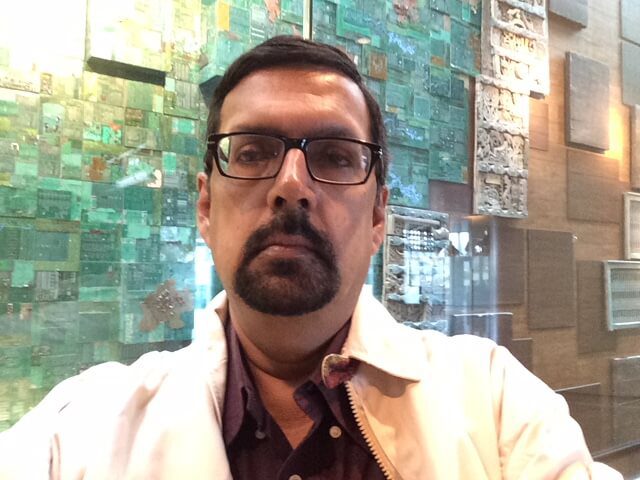
Colours of Tulip
There are moments in our lives which,
give us paradise—
red tulips in the foothills of Kashmir,
longings are in the soaking eyes,
most subtle of the tears
tap on its red button,
Seasons will not be quiet anymore
the wound and anguish are making their
black scripts on the stone wall,
cider leaves kiss death on the mouth
the cold winds and dark birds
exchange the nightmares.
Blood is mute, autistic and seared
Blood on the dark night, on the stillness
Its edges blur with cries, a kind of moan.
this calmness, this silence,
the cruel and blasphemous are marking
an uneasy path; we can’t erase.
©gopallahiri
Worrying touch
It tries to escape, I do not know about
the rain inside,
let this young girl carries the grief
whirring world in her calm,
sick, dying, afraid-gloomy faces
awash in dark memoirs,
they do not move, the stormy winds
murmuring the menacing caresses,
the wooden door awaits her return
left-over handshakes choke the arteries.
some unnamed islands record stories
her light struggles to reach us
night is threading the needle between the stars
the worst is not over yet.
@gopallahiri
New Light
Each night is raging with fire and flame
I promise I give you back the food
stolen from our plate.
Tortured and tormented, violence in continuum
unresolved, uncorrected.
I am not afraid to be angry.
The eyes I am born with looking up
dark night devours all,
I give you the leash, the voice.
Each wound I polish on the secret stone
shines in false light: there is nostalgia too.
I protest day and night,
There is an uproar you can lean against.
the city is indifferent the way it was centuries ago.
I am not afraid to be black
The stone walls scribble: alleys are filled
with future alphabets.
All those songs never stop for a moment.
A certain beauty is waiting on the street
with something that cares, that cultivates.
we lay ourselves under the new light.
©gopallahiri
Photos shared by the author and visuals from Different Truths

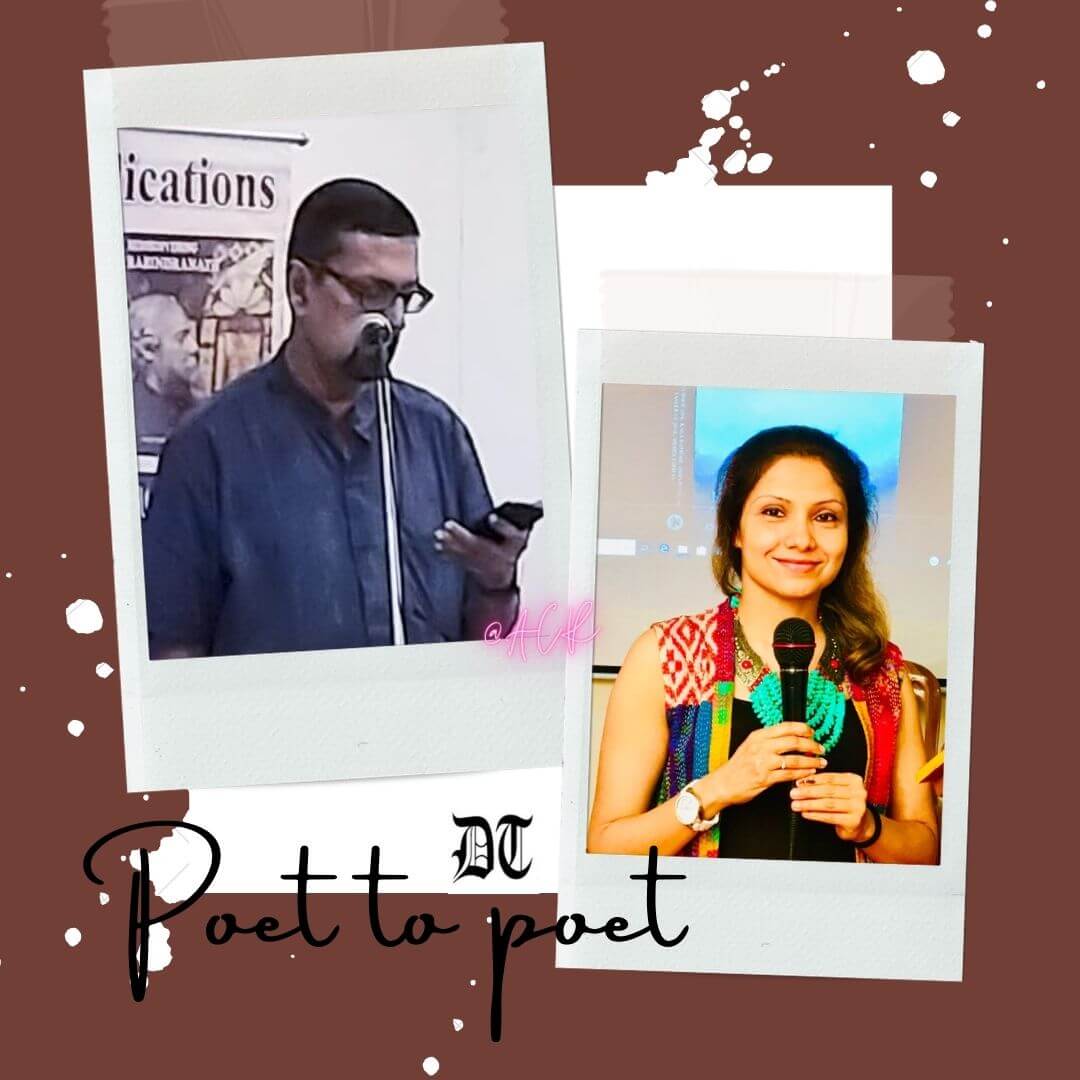
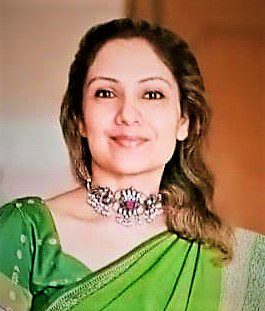

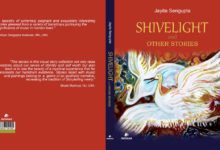

 By
By
 By
By
 By
By
 By
By